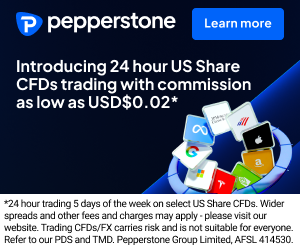REVIEW OF KKR: INVESTING IN IRELAND'S MARKETS
Looking to invest through the Irish stock market but unsure where to begin? This article explains who this broker is, how they operate in Ireland, and what investment services they provide.
We also outline the account opening process, the range of tradable instruments, and what to consider if you’re new to investing. A clear and helpful guide for accessing the Irish and international markets with confidence.

Getting Started with KKR in Ireland
KKR — Kohlberg Kravis Roberts — is a global name in private equity and alternative investments. In Ireland, they operate at the institutional level, focusing on infrastructure, credit, and long-term strategic investments.
If you're a professional investor, fund manager, or working with a pension scheme, KKR offers exposure to global projects and innovation-driven sectors. Their investments often impact sectors like renewable energy, healthcare, and data infrastructure across Europe, including Ireland.
Retail investors don’t typically access KKR directly — but their impact on Irish investment flows is definitely felt in the bigger picture.
What Are Brokers and How Do They Work in Ireland?
Brokers are regulated financial firms or professionals who facilitate the buying and selling of investment instruments such as shares, bonds, ETFs, and funds on behalf of clients. They operate within a regulatory framework overseen by the Central Bank of Ireland and, where applicable, under EU-level regulation from the European Securities and Markets Authority (ESMA).
Brokers serve as a key link between private investors, institutions, and the financial markets. Whether you’re investing through a pension scheme, managing family wealth, or trading online as an individual, brokers provide access, advice, and execution services. Here’s how they operate in the Irish market:
Execution of Trades: Brokers carry out buy and sell orders for Irish and international shares, bonds, ETFs, and managed funds. Many also support access to overseas markets such as the NYSE, NASDAQ, and LSE.
Regulation and Oversight: Irish brokers must be authorised by the Central Bank of Ireland and meet MiFID II requirements, including client asset protection, conduct of business rules, and transparency obligations.
Types of Services: Brokers may offer execution-only services, investment advice, or discretionary portfolio management. Some specialise in online trading platforms, while others provide tailored, relationship-based services.
Market Access: Clients can invest in companies listed on Euronext Dublin (formerly the Irish Stock Exchange), as well as global equities, funds, fixed-income products, and exchange-traded instruments.
Clearing and Custody: Trades are cleared through recognised clearing houses and assets are typically held via nominee accounts or custodial platforms, depending on the broker’s model.
Client Base: Irish brokers serve a wide audience, including individuals, corporates, pension schemes, charities, and high-net-worth families. Some also cater to international clients with EU residency.
Fees and Charges: Brokerage fees vary depending on the level of service. Online brokers tend to offer low-cost flat fees, while advisory and wealth management services may charge percentage-based or fixed annual fees.
Tradable Instruments on Euronext Dublin
Euronext Dublin provides access to a wide range of tradable instruments and plays a key role in connecting Irish and international capital with companies seeking to raise funds.
The Central Bank of Ireland regulates Euronext Dublin and operates within the European Union’s MiFID II framework. It is a key hub for debt and funds listings globally, and supports both domestic and international investors across the following financial instruments:
Equities (Shares): Irish and multinational companies list their ordinary shares on Euronext Dublin to access public equity markets. Investors can trade these shares to gain exposure to firms in sectors such as pharmaceuticals, financial services, construction, and technology. Equity listings include both Irish SMEs and cross-listed global companies.
Exchange-Traded Funds (ETFs): Dublin is one of Europe’s leading centres for ETF listings. These funds track a wide range of indices—including equity, bond, ESG, and thematic strategies—and are listed under the Euronext Dublin banner. ETFs are widely used for low-cost portfolio diversification by both institutional and retail investors.
Bonds and Debt Securities: Euronext Dublin is a global leader in debt listings, particularly for corporate bonds, green bonds, sovereign bonds, and structured finance instruments. Many international issuers choose Dublin for its efficiency and international investor access. These securities are traded via Euronext’s fixed income platform.
Investment Funds: Dublin is a major centre for the listing of regulated and unregulated collective investment schemes, including UCITS and AIFs. These funds invest in global equities, fixed income, hedge strategies, or real assets, and are structured to meet the regulatory requirements of Irish and international investors.
Depository Receipts: Some non-EU issuers opt to list depository receipts in Dublin to gain access to European investors. These instruments represent shares in foreign companies and are tradable like regular equity securities on the exchange.
Green and ESG Instruments: Dublin has positioned itself as a key destination for the listing of sustainable finance products. Green bonds, sustainability-linked bonds, and ESG-labelled funds are increasingly listed on Euronext Dublin to meet investor demand for responsible investment solutions.
Structured Products: Derivatives and structured investment products such as certificates, warrants, and notes are also listed on Euronext Dublin, primarily targeting professional and institutional investors seeking exposure to bespoke or leveraged strategies.








